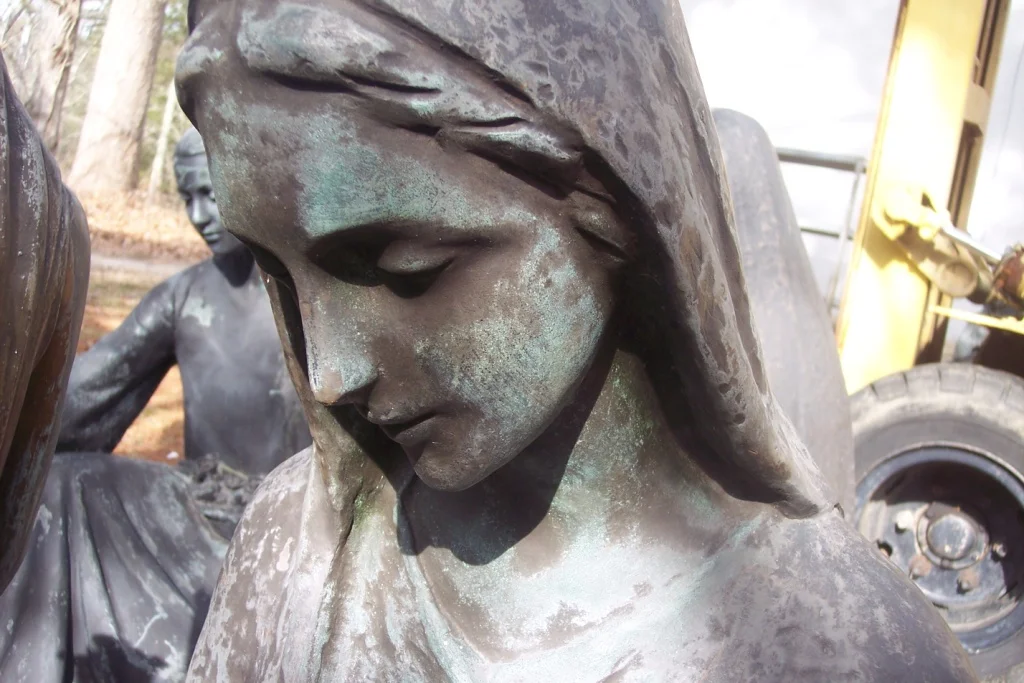memento that mori
I live in a hilly little town in a hilly little county in a hilly little state. It's more farmland than people expect when they come to visit: cows, hay and corn for the cows, apple orchards, and maybe some hops. That's about it, although we are starting to see a resurgence of small farms that have more diverse offerings. These fields tend to be curved, not flat. The lines when they hay are swooping. Most of these little towns were settled in the late 1700s, so the graveyards date from about then. The graveyards are typically tucked onto an absolutely unusable plot of land, and the more bizarre the terrain, the older the gravestones. Using flat open non-rocky space for burying people is a post-agrarian luxury. Those gravestones from the 1700s, and most of the ones from the 1800s, are almost unreadable now. It's a combination of shallow engraving, the stone disintegrating from exposure, difficult to read typefaces, lichen and moss encroaching, or even just parsing the grammar used in epitaphs 200+ years ago. The stories on view here will break your heart: families divided by war, childhood illnesses, infant mortality. Men outliving multiple young wives.
I've been hanging out in graveyards for a couple years now—I got tired of driving by them and saying "some day I'll visit that." Now I just go. Usually on a Sunday afternoon, sometimes with my pipe or a cigarette. I walk the whole thing, I look at every stone. If it's too big I'll come back the following week. Life has been hard and sad for the past few years, and (this might sound morbid) graveyards are soothing and encouraging in a way nothing else is.
All this, everything we go through, is God-ordained and temporary. The good, the bad. Circumstances come and go, death comes for all of us, Christ is all, Christ is all. I cry thinking about the people I've lost whose gravestones I can't visit, for whatever reason. I cry thinking about the people who are dead while they still live. I cry reading tributes to parents, spouses, wondering if I will leave anyone behind. Ultimately, it doesn't matter, does it? To live is Christ, to die is gain. Has that verse ever sunk in more than it has recently? My desire is to depart and be with Christ, for that is far better. I cannot begin to explain the encouragement that it is to see the testimony of a stone pointing to Christ when the person underneath it has been dead, gone, and forgotten for centuries. It's good to think on these things now while I still have some say. If these people kept silent, the stones would cry out.
Death is often on my mind. Try explaining that when someone asks how you're doing. Our life, the daily business we go about, is preparation for death. What's left when you die? Your stuff and your money go to others. Your knowledge and capability die with you. Your body is burnt or put into the ground: ashes to ashes, dust to dust. You might leave some kind of philanthropic legacy, your name on buildings or books, maybe a handful of people who bear your name who will show up in that graveyard once or twice a year to clip back the dead stems and brush away the dried grass. What we do here, no matter how good, is forgotten, if it was ever seen to begin with. (I'm not saying we should grow weary in doing good. But the REASON for doing good bears some examination.)
Memento mori: remember your death. It's a companion to remembering your baptism, in which you are buried with Christ in a death like his, raised again like him into new life. Remember your baptism; remember you are dust. It's more than skull jewelry, more than wearing black: you will die. Everyone you love will die. I don't even mean this in a sad way! It is a MERCY. Consider Adam and Eve: they had what presumably amounted to eternal life, then they ate of the tree of knowledge of good and evil. God ejecting them forcibly from the garden and locking it, making them mortals with a (yes, long) lifespan, was a MERCY. Imagine living forever with the full knowledge of good and evil. We're not meant to bear this fallenness, this brokenness, eternally. When we fall asleep in Christ, we awake to the glorious reality of the Resurrection: not just made well, but restored. With our Saviour, outside of time. And this is why I cry in graveyards: the weight of this timeline is heavy. But it is not forever.






